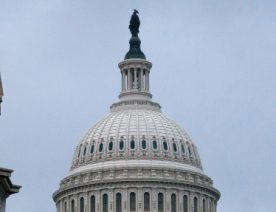
Few Americans believe politicians’ campaign messages, political debates and even voters’ choices are frequently based in fact, according to a national poll by USAFacts and The Associated Press-NORC Center for Public Affairs Research.
As the 2020 presidential campaign gets underway, Americans express deep skepticism about the information provided by political candidates. Just 9% of American adults say that candidates’ campaign messages are always or often based in fact, and only 13% say the same about political debates. Given that these are fundamental ways Americans learn about candidates and their choice for president, it is perhaps unsurprising that just 14% also say that voters’ decisions are frequently based in fact.
Similarly, about 2-in-10 or fewer of Americans believe the news media’s reporting as well as decisions by policymakers are always or often based in fact. Republicans tend to be more skeptical than Democrats. Fifty-four percent of Republicans believe candidates’ campaign messages are rarely or never based in facts, compared with 39% of Democrats. There are generational differences as well – Baby Boomers have less confidence in politicians’ statements than Millennials.
The 2019 State of the Facts Poll also examines Americans’ perceptions of what constitutes a fact, their ability to understand facts, and their use and trust of government sources. For more information, see the first release of the AP-NORC/USAFacts The State of the Facts Poll 2019.
The nationwide survey of 1,032 adults was conducted using AmeriSpeak®, the probability-based panel of NORC at the University of Chicago, and was funded by USAFacts. Interviews were conducted between October 15 and 28, 2019, online and using landlines and cell phones. The margin of sampling error is +/- 4.2 percentage points.



